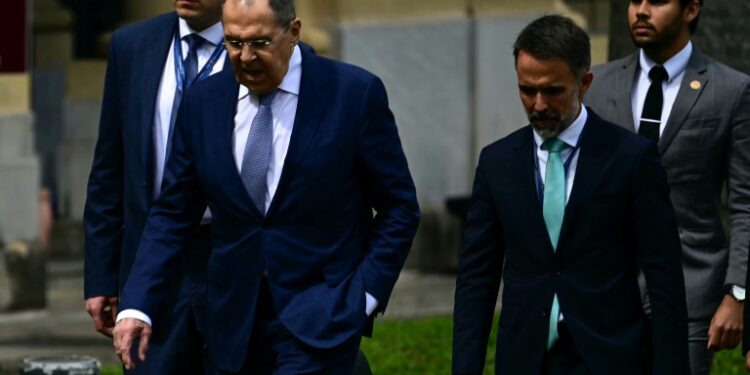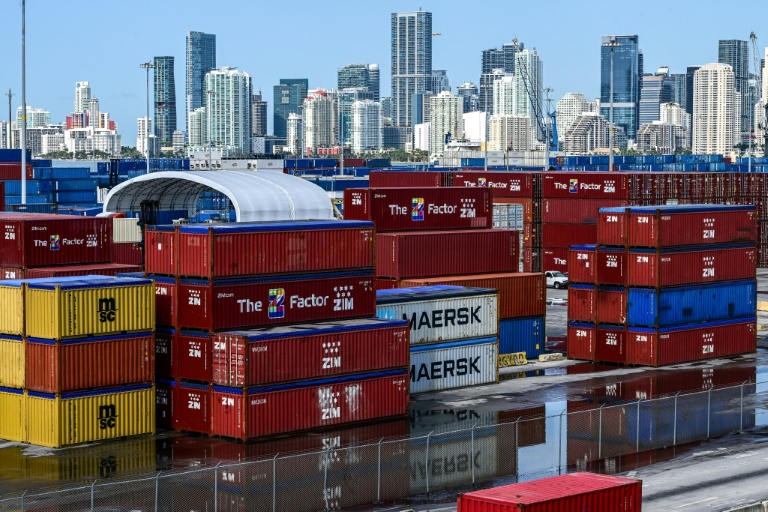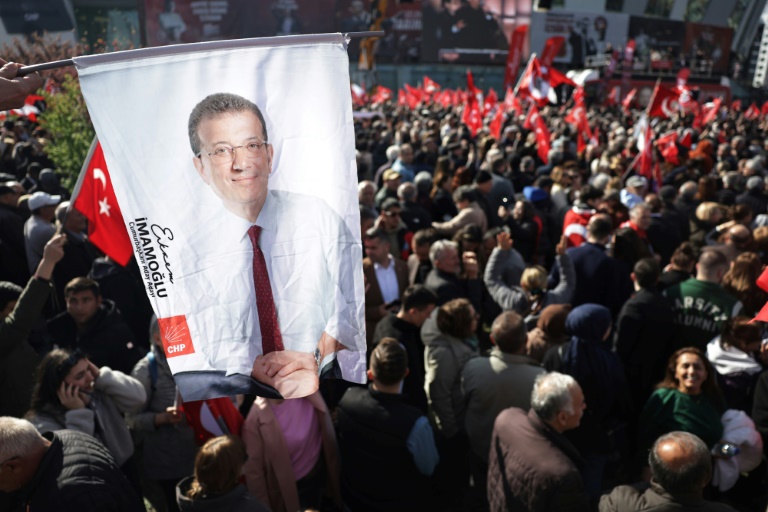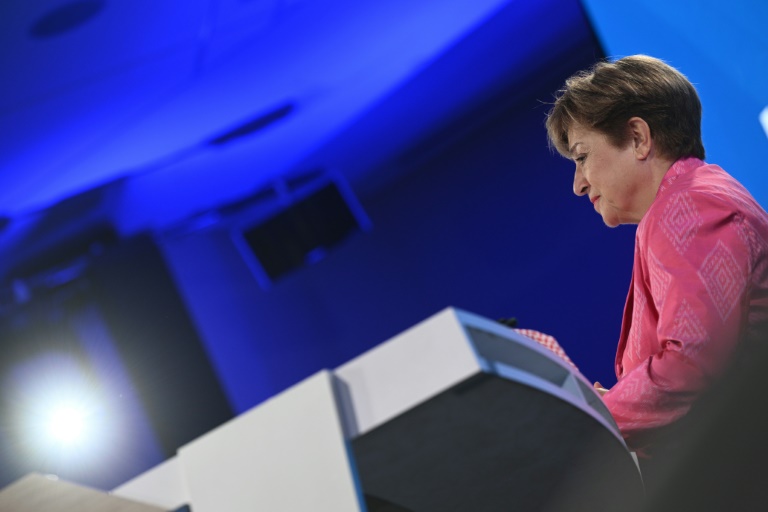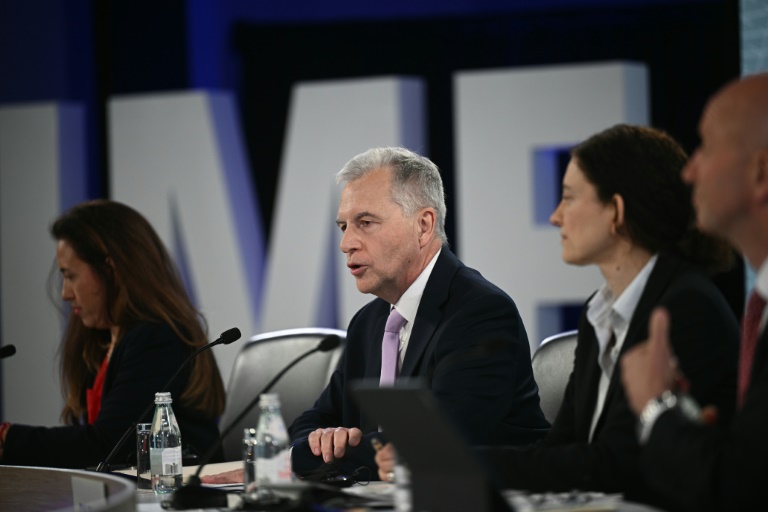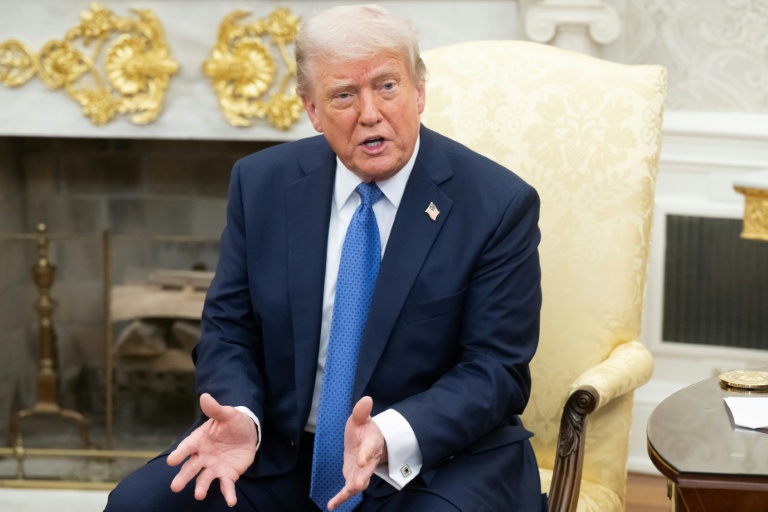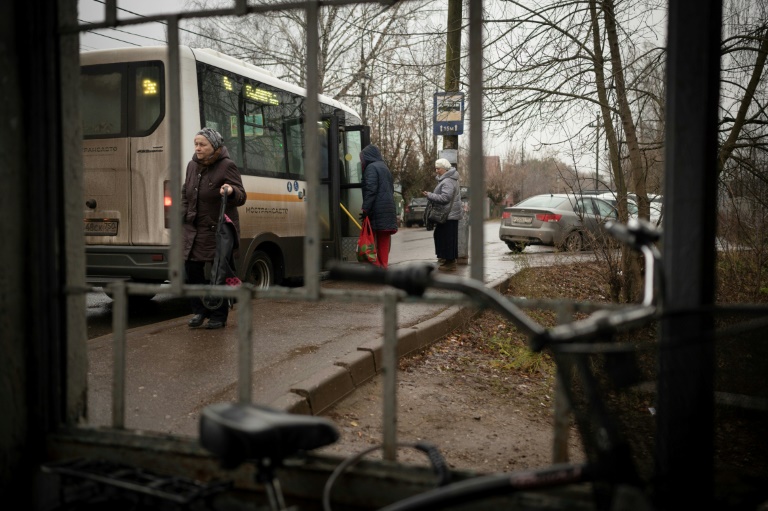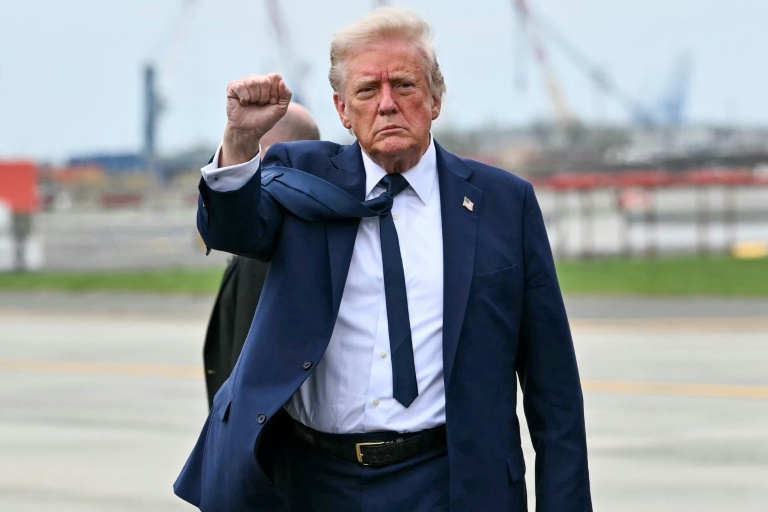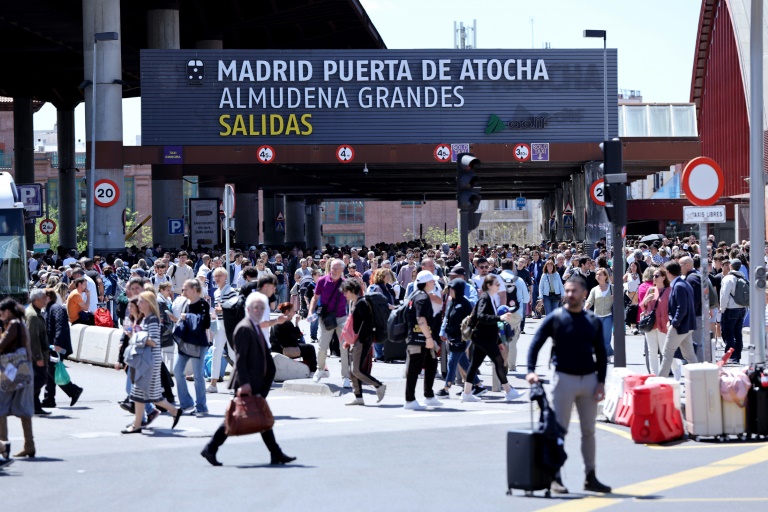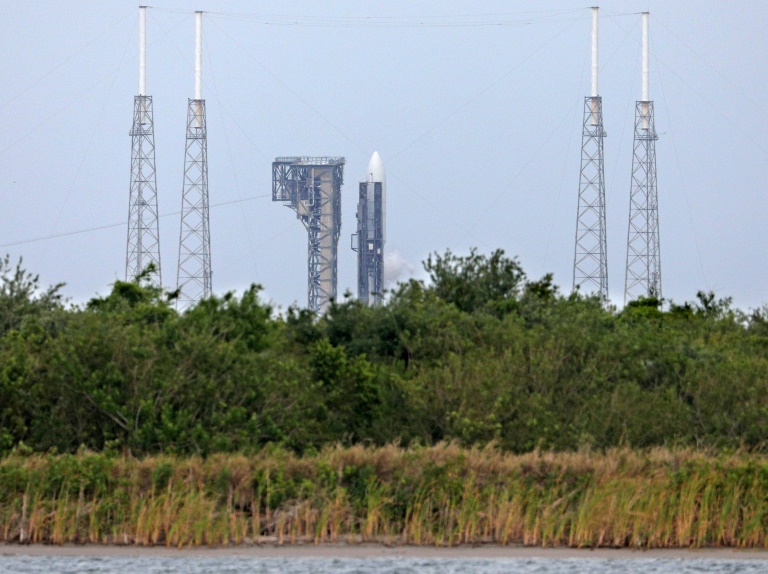Rio de Janeiro (Brazil) (AFP) – The foreign ministers of Brazil, China, Russia, and other BRICS members began two days of talks in Rio de Janeiro Monday, aimed at forging a united front to US President Donald Trump’s aggressive trade policies. The meeting comes at a critical moment for the world economy after the International Monetary Fund slashed growth forecasts over the impact of the US leader’s sweeping new tariffs.
Top diplomats from the 11-member bloc — which includes Egypt, Ethiopia, India, Indonesia, Iran, Saudi Arabia, South Africa, and the United Arab Emirates — met to hone their agenda ahead of a July leaders summit. Brazilian Foreign Minister Mauro Vieira stressed the importance of dialogue at a time of “humanitarian crises, armed conflicts, political instability, and the erosion of multilateralism.” He emphasized that BRICS’s “role as a group is more important than ever.”
Since returning to the White House in January, Trump has imposed a blanket 10 percent tariff on dozens of countries, but China faces levies of up to 145 percent on many products. In response, Beijing has enacted duties of 125 percent on US goods. Senior Chinese economic planner Zhao Chenxin stated Monday in Beijing that the country was on the “right side of history” in the face of what he described as Washington’s “unilateralism and bullying.”
BRICS has expanded significantly since its inception in 2009 as a group of four powers — Brazil, Russia, India, and China — seeking an alternative platform to Western-led international organizations such as the G7. It now represents nearly half of the world’s population, accounts for 39 percent of global GDP, and weighs in on issues from Ukraine to Gaza to global trade.
Vieira opened the talks with a call for a “complete withdrawal” of Israeli forces from Gaza, describing Israel’s over 50-day aid blockade of the territory as “unacceptable.” The group has generally said less about the war in Ukraine, issuing calls for peace while steering clear of condemning Russia’s invasion. Vieira also called for a “diplomatic solution” that respects the “principles and objectives” of the United Nations charter.
The meeting coincides with what the United States has termed a “critical week” for talks aimed at ending the Ukraine war. Trump appeared to shift his stance on Putin over the weekend after a meeting with Ukrainian President Volodymyr Zelensky at Pope Francis’s funeral, expressing that he felt the Russian leader was “just tapping me along.” In response, Russian President Vladimir Putin announced a three-day ceasefire from May 8-10. However, the White House indicated that the pause was insufficient, stating Trump had “made it clear he wants to see a permanent ceasefire first.” Simultaneously, the US president has been applying pressure on Kyiv to abandon hopes of reclaiming Russian-annexed Crimea.
A BRICS challenge to the hegemony of the dollar is expected to feature prominently on the agenda. At a summit last year, BRICS members discussed boosting non-dollar transactions, drawing a swift rebuke from Trump, who threatened them with 100 percent tariffs if they undermined the US currency. Speaking to Brazil’s O Globo newspaper ahead of the meeting, Russian Foreign Minister Sergei Lavrov mentioned that BRICS nations planned to “increase the share of national currencies in transactions” between member states, though he noted that discussions about transitioning to a unified BRICS currency were “premature.”
Vieira, whose country has thus far been spared the worst of Trump’s trade ire — Brazilian imports to the US are subject to 10 percent tariffs, a fraction of those imposed on China — also denied any plans to create a new currency. Another issue expected to feature prominently in the joint statement issued after the BRICS meeting on Tuesday is climate change. Brazil is set to host this year’s UN COP30 climate conference, scheduled for November in the Amazon city of Belem.
© 2024 AFP

